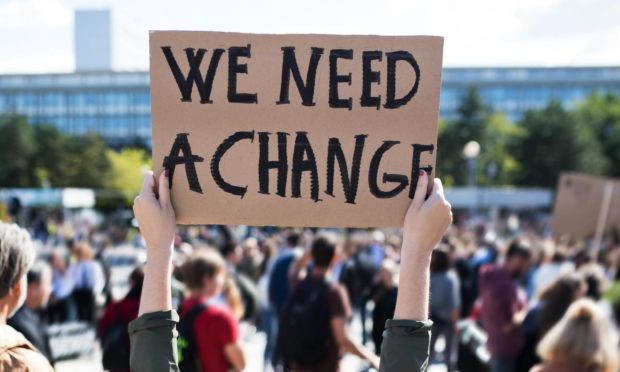Following from my last column’s announcement about the planned new Union of Independents party, I’m now in a position to make my first major policy announcement.
I believe this is a vote winner as big business will dislike it and so will “left- wing” oriented campaigning groups. This means it will be something the public will actually associate with. In addition, it bucks a trend of the leading political parties of the last 10 years. To make it more relevant to the north and north-east, I’ll focus my efforts on the energy sector.
With immediate effect, I will be changing the recruitment and retention strategy for the minister for energy. In the last 10 years there have been 11 government ministers in that position, of whom none have what I think is relevant sector expertise.
With that in mind I am going to recruit someone qualified and create a fixed 10-year role which should help continuity of direction. So instead of one minister a year for 10 years I will have one minister for 10 years. This goes against practice for revolving-door politics and politicians but what the hell – viva la revolution.
The primary objective given to this minister and all other departments will be to draw from the best of what we know from big business and those who hold a view of the exact opposite. For my energy portfolio I will require a menage a trois of oil companies, energy generation companies and anarchists. I won’t name companies or groups but I suspect you can guess the sort I mean.
Moderate and sensible anarchist
I’ll briefly touch a little more on anarchists. You may have inferred I consider something like Extinction Rebellion to be an anarchist group, but I don’t. Anarchists nowadays are typified as extremists who riot, break the law and are generally behind a cause most consider excessive or extreme. I don’t want this type of anarchist; I want a moderate and sensible sort.
Anarchy should be about creating the best of group dynamics and sharing benefit and delivering for the wider population. It should be about fighting inequality and creating balance. Sadly over the years that element of anarchism has been lost. The term is now associated with extreme views and groups.
It would be fair to say that in previous times, being associated with failed communist dictatorships didn’t help the perception of anarchists either. However, I think real anarchists could have a real role in my wider government group. I also believe real anarchy is alive and well, we just call it social media and “platforms”.
So my definition of anarchists can be more closely related to the new style of businesses and social groups that exist, particularly around climate change.
One business I’ve noted is PawPrint, which I’m actually about to integrate into our business. I can only describe it as a business focused on the climate change movement which will help our business and team reduce their carbon footprint. This is hardly anarchy as most define it, but it is a movement of like-minded people.
My requirement for “big business” to be part of the solution is quite simply because capital remains critical to actually making stuff happen. The fact is that in today’s society big business is going to remain critical to make change and investment happen. It is all well and good groups like Extinction Rebellion marching and campaigning, but money counts.
These groups do not have the backing of the majority of the population, even if sometimes most of us actually agree with some of the sentiment.
Therefore I will require business to fund schemes which will be mutually agreed with those furthest departed from the core focus of these businesses. In my land of milk and honey this will create balance and better outcomes.
The truth is, most businesses can lobby and influence within the existing structures of political power in a way that most anarchist groups can never achieve.
I believe we need to rebalance the current bias of capital-heavy influence; economic outcomes are not just about growing financial wealth and capital.
Better allocating capital to programmes which don’t only meet the needs of profit generation is important. Involving these more extreme views and allocating capital to these ideas will no doubt waste some money but it will focus capital on economic issues that are important in the long run, and I see climate change as one of them.
If we leave the decisions to those with most influence within current power systems I believe we will suffer in the long-term. Who knows, if I succeed I might even encourage the wealthy to create an anarchist movement of their own.
James Bream was research and policy director at Aberdeen and Grampian Chamber of Commerce and is now general manager of Aberdeen-based Katoni Engineering.

